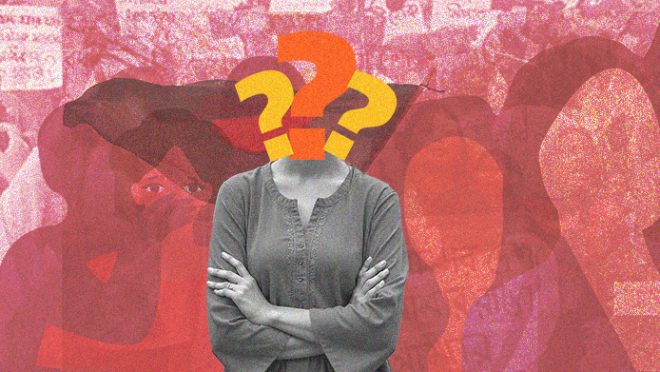Would you survive as a woman in Bangladesh?
Would you survive as a woman in Bangladesh?

Unless you’ve been living under a rock, you saw what happened three days ago, on 1 March, in Dhaka’s Lalmatia. Two women were beaten up for smoking at a ‘tong’ by men who were supposedly upkeeping the area’s social reputation. This sparked a series of posts online, calling for the men to be punished, and soon enough, the Home Affairs Advisor would give his verdict.
“Smoking is to be prohibited in public.” I was confused, then flabbergasted by this; how can someone miss the whole point of the incident by so much? Then I contemplated, how much harder is life for women in Bangladesh?
Invisible women
Would you imagine for a moment that somehow, someway, you woke up as a woman in this country? You wouldn’t be able to do any of the things you did as a man anymore.
Smoking in a public place has already proven itself to be a dance with death. While you’d have to drastically change all the other aspects of your life. You wouldn’t be able to stay late at night due to your own safety concerns. And God forbid, even if something happened to you, a section of the population would blame you for getting harassed just because you were out at night.
Then comes the discrimination in the workplace. Many a time I’ve seen my friends do well in a course, and the other people in that course credit her hard-earned success to the faculty’s wishes, saying that they are female biased. Many a time I’ve heard women getting promoted and their dignity being called into question; nobody even bats an eye at the hard work they put behind their careers.
Even at home, as a woman, you are expected to do the lion’s share of the housework. It doesn’t matter if you want to focus on your career; a lot of your nosy relatives will hold your personal life against you in this patriarchal society.
Gender trouble
But that could be adhered to. It’s not fair, but it could be adhered to. But what happened in Lalmatia and the subsequent reaction from the people in charge is what made me ask this question in the first place. Two women were smoking in a tong, a local tea stall where smoking is extremely common, and someone claiming to ‘own the area’ decided it was his time to be the moral police.
Then the women were verbally abused, then kicked, slapped and beaten. At one point they were chased by a gang of men as well, who very well might’ve killed them if intervention hadn’t arrived in time.
Unsurprisingly, this caused outrage in the country; many called for legal action to be taken against the self-righteous older man who apparently owned Lalmatia, but Home Ministry Advisor Jahangir Alam Chowdhury blamed the women for the whole incident.
He said that smoking in public was to be illegal for both men and women, entirely missing the point about gender discrimination that was apparent to everyone but him. And as for the victims, nothing was done to get them their justice.
The second sex
I wonder when exactly the societal situation in Bangladesh changed so much that women could be beaten up in the streets and no action would be taken against the ones who do it. Rather, they would be blamed for doing something that is done by millions of men every day.
I wonder when this apparent discrimination became so normalised that even the government fails to provide safety to their women. A few weeks ago, the number of rape and sexual violence cases rose up exponentially all over the country, and former Awami League members were blamed rather than coming up with a solution.
I wonder when this became acceptable, that even when people could see injustice happening right in front of them, they are more than okay with being silent. Moral policing overtaking moral implications and moral compasses.
Maybe you’ll argue that this is the traditional way things have been in our country. Women have been caged up inside their homes; obstructions imposed on smoking, eating, roaming or even working freely. This is just how this country has functioned since its inception. But is that how you want it to be? Would you be okay with these norms if they had implications for you? Would you give up your human rights just for a chance to survive in your own motherland?
In the words of Grace Hopper, “The most dangerous phrase in any language is: ‘We’ve always done it this way.’”


